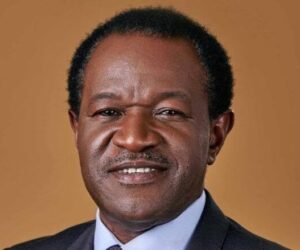…says mathematics compulsory for science, technology, social science courses only
The federal government has approved a comprehensive reform of admission entry requirements into all tertiary institutions across Nigeria, with the goal of expanding access and admitting an additional 250,000 to 300,000 students each year.
According to a statement signed by Boriowo Folasade, Director of Press and Public Relations, ministry of education, the new policy championed by Maruf Tunji Alausa, Minister of Education, marks a major milestone in the implementation of the Renewed Hope Agenda, aimed at democratizing access to higher education and empowering Nigerian youths through inclusive and equitable learning opportunities.
Alausa explained that the reform became necessary following years of limited access that left many qualified candidates unable to secure admission despite their competence.
He noted that while over two million candidates sit for the Unified Tertiary Matriculation Examination (UTME) annually, fewer than 700,000 gain admission into universities, polytechnics, and colleges.
“This imbalance is not due to a lack of ability, but outdated and unnecessarily stringent entry requirements that must give way to fairness and opportunity,” the Minister stated.
Under the newly approved National Guidelines for Entry Requirements into Nigerian Tertiary Institutions, English Language remains compulsory for all candidates, while Mathematics will now be mandatory only for candidates applying to Science, Technology, and Social Science courses.
The revised framework, which applies to universities, polytechnics, colleges of education, and Innovation Enterprise Academies (IEAs), is designed to remove access barriers while maintaining academic quality and relevance to industry and national needs.
For universities, the minimum requirement remains five credit passes in relevant subjects, including English Language, obtained in not more than two sittings.
For polytechnics and colleges of education, the new guidelines stipulate four to five credit passes depending on the program level and field of study, while Innovation Enterprise Academies are to adopt the same standard as polytechnics for the National Diploma (ND).
In line with the reform, the National Innovation Diploma (NID) previously issued by Innovation Enterprise Academies will be phased out and replaced with the National Diploma (ND) to ensure uniformity, credibility, and progression opportunities for graduates.
The National Board for Technical Education (NBTE) has begun a re-accreditation exercise to align all IEAs with the new ND standards, with non-compliant institutions facing de-accreditation.
“Universities: Minimum of five (5) credit passes in relevant subjects, including English Language, obtained in not more than two sittings. Mathematics is mandatory for Science, Technology, and Social Science courses.
“Polytechnics (ND Level): Minimum of four (4) credit passes in relevant subjects, including English Language for non-science courses and Mathematics for science-related programs.
“Polytechnics (HND Level): Minimum of five (5) credit passes in relevant subjects, including English Language and Mathematics.
“Colleges of Education (NCE Level): Minimum of four (4) credit passes in relevant subjects, with English Language mandatory for Arts and Social Science courses, and Mathematics required for Science, Vocational, and Technical programs.
“Colleges of Education (B.Ed Level): Minimum of five (5) credit passes, including English Language and Mathematics, as applicable to the course of study.
“Innovation Enterprise Academies (IEAs): To adopt the same minimum requirements as Polytechnics for the National Diploma (ND) program. The National Innovation Diploma (NID) is hereby abolished.
Read also: ASUU strike: UNIBEN, UNN exams disrupted, postponed
“In addition, the National Industrial Diploma (NID) previously issued by Innovation Enterprise Academies will be phased out and replaced with the National Diploma (ND) to ensure uniformity, credibility, and progression opportunities for graduates. The National Board for Technical Education (NBTE) is currently re-accrediting all IEAs nationwide to align with the new ND standards. Institutions that fail to transition to full accreditation will be de-accredited,” the statement reads
Alausa emphasised that the reform is a deliberate and strategic effort to broaden educational access, reduce the number of out-of-school youths, and align Nigeria’s tertiary education system with global best practices.
He reiterated the Federal Government’s commitment to inclusive education, human capital development, and youth empowerment, stressing that the move reflects President Tinubu’s determination to provide every Nigerian youth with the opportunity to learn, grow, and contribute meaningfully to national development.








